
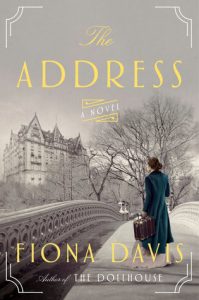 Title: The Address by Fiona Davis
Title: The Address by Fiona Davis Published by Dutton Books
Published: August 1st 2017
Genres: Historical, Fiction
Pages: 368
Format: eBook
Source: Netgalley
Goodreads
After reading her second novel, Fiona Davis has become one of my new favorite historical fiction writers. In The Address, Davis expertly weaves two women’s lives and the history of a landmark residence, The Dakota, in New York City. The lives of two women from the 1880s and the 1980s are woven together as the mystery behind The Dakota unfolds. The Address begins in 1985 when Bailey Camden, heir without genetic proof to The Dakota’s architect, is released from rehab and reenters the world, ready to make something of herself. The famed residential hotel, The Dakota, has fallen into disrepair, and Bailey, who is trying to reestablish herself as an interior designer, wants to learn more about the history behind the building. The narrative weaves in and out of Bailey Camden’s discovery of the history of The Dakota while exploring Sara Smythe’s connection with the residence.Fiona Davis, author of The Dollhouse, returns with a compelling novel about the thin lines between love and loss, success and ruin, passion and madness, all hidden behind the walls of The Dakota, New York City's most famous residence.
After a failed apprenticeship, working her way up to head housekeeper of a posh London hotel is more than Sara Smythe ever thought she'd make of herself. But when a chance encounter with Theodore Camden, one of the architects of the grand New York apartment house The Dakota, leads to a job offer, her world is suddenly awash in possibility--no mean feat for a servant in 1884. The opportunity to move to America, where a person can rise above one's station. The opportunity to be the female manager of The Dakota, which promises to be the greatest apartment house in the world. And the opportunity to see more of Theo, who understands Sara like no one else . . . and is living in The Dakota with his wife and three young children.
In 1985, Bailey Camden is desperate for new opportunities. Fresh out of rehab, the former party girl and interior designer is homeless, jobless, and penniless. Two generations ago, Bailey's grandfather was the ward of famed architect Theodore Camden. But the absence of a genetic connection means Bailey won't see a dime of the Camden family's substantial estate. Instead, her -cousin- Melinda--Camden's biological great-granddaughter--will inherit almost everything. So when Melinda offers to let Bailey oversee the renovation of her lavish Dakota apartment, Bailey jumps at the chance, despite her dislike of Melinda's vision. The renovation will take away all the character and history of the apartment Theodore Camden himself lived in . . . and died in, after suffering multiple stab wounds by a madwoman named Sara Smythe, a former Dakota employee who had previously spent seven months in an insane asylum on Blackwell's Island.
One hundred years apart, Sara and Bailey are both tempted by and struggle against the golden excess of their respective ages--for Sara, the opulence of a world ruled by the Astors and Vanderbilts; for Bailey, the free-flowing drinks and cocaine in the nightclubs of New York City--and take refuge and solace in the Upper West Side's gilded fortress. But a building with a history as rich--and often tragic--as The Dakota's can't hold its secrets forever, and what Bailey discovers in its basement could turn everything she thought she knew about Theodore Camden--and the woman who killed him--on its head.
With rich historical detail, nuanced characters, and gorgeous prose, Fiona Davis once again delivers a compulsively readable novel that peels back the layers of not only a famed institution, but the lives --and lies--of the beating hearts within.
For me, Sara Smythe’s part of the story was the most interesting. I have a soft spot for stories about women who rise from the bottom to become more than they ever dreamed of becoming. Sara, when we first meet her, is a hotel manager in England who saves the life of an architect’s daughter. Theodore Camden, the architect, offers her a position at the residential hotel he has built in New York City. The attraction between Sara and Theodore is immediate right from the start, and that relationship develops over the course of the novel. The twists and turns at the end of her story were a little unexpected and thrilled me. It’s revealed at the beginning of the novel that Sara stabbed Theodore, but the true thrill are all of those little events that lead up to that event. However, I felt like Bailey’s desire for a fresh start and her refusal to compromise herself tied the lives of both women and tied the story together, because no matter the hundred years between them and no matter the different social structures, both women faced similar struggles and strove to overcome them.
Overall, this is an enjoyable historical fiction novel. For the first third of it, I felt like the story was weighed down by the amount of research and detail in the set up, but that detail redeems itself when the story does pick up and become difficult to put down. I’ve already hand-sold this and her previous novel, The Dollhouse, to some of my customers looking for new historical fiction recommendations, so if you enjoy fiction about women who overcome their struggles and enjoy historical fiction set in New York City, The Address comes highly recommended!
Thanks to Netgalley and Dutton/Penguin for a review copy! All opinions are my own.

 Title:
Title: 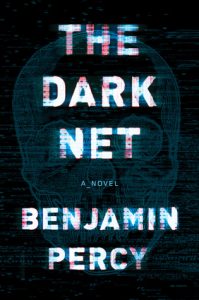 Title:
Title: 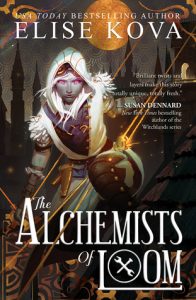 Title:
Title:  Title:
Title: 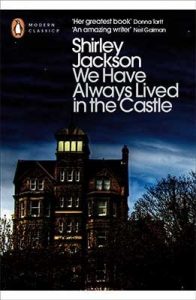 Title:
Title: 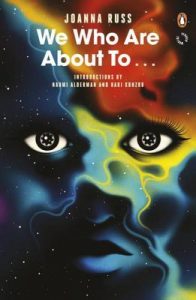 Title:
Title: